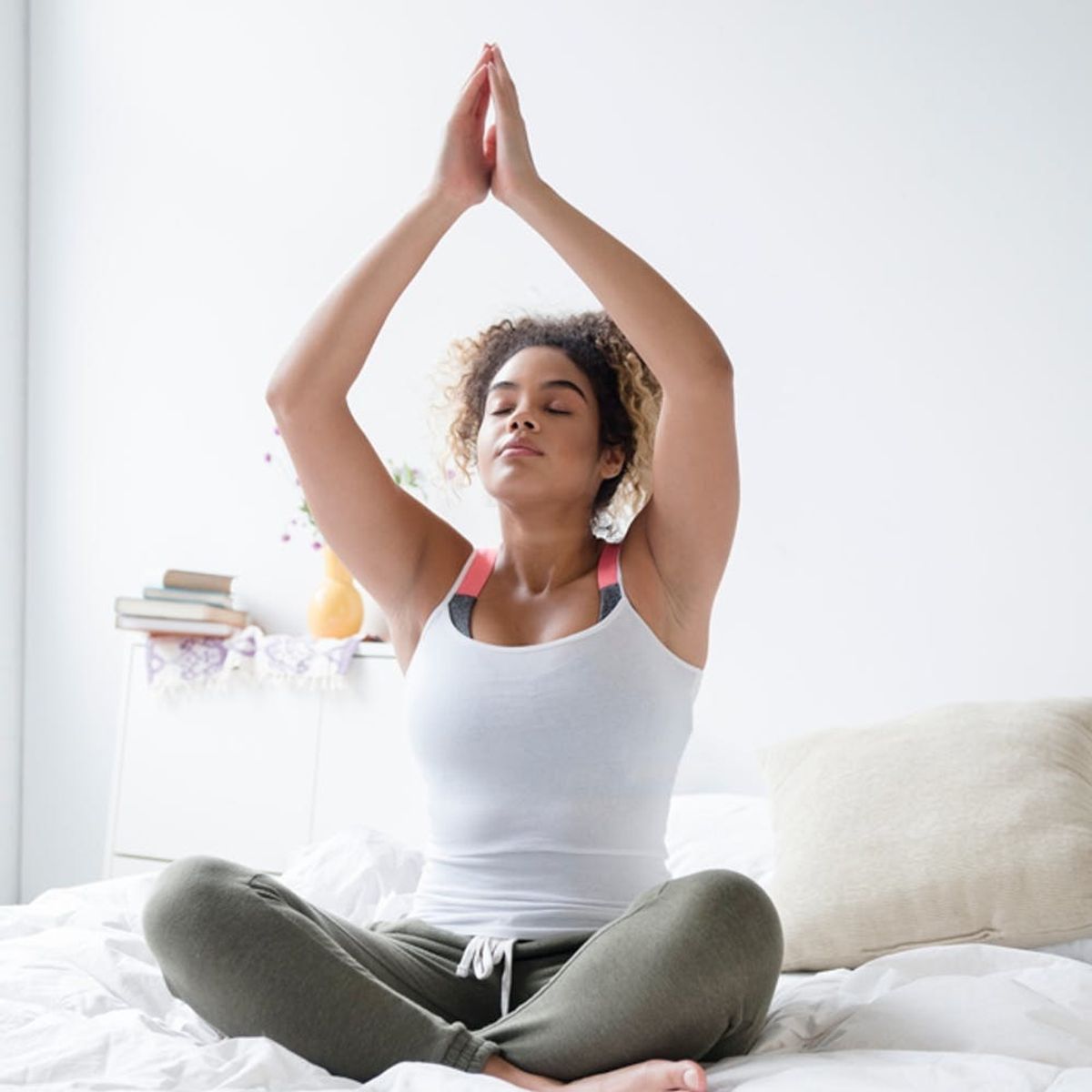Mindfulness matters, but how you practice it might not.
Here’s Why Millennials Are So Dedicated to Practicing Mindfulness

A trendy topic at buzzy start-ups, popular companies, and on well-read wellness blogs, mindfulness is a super important part of maintaining a healthy mindset, and it can even help you feel happier by easing stress. Interestingly, new research shows that millennials practice mindfulness much differently than people ever have before. Curious to learn more, we reached out to Mark Viden from Dignity Health to break down the divide for us. Read on for some fascinating stats that’ll inspire you to rethink how you stay balanced on busy days.

Millennials are stressed (and they know it)
Sadly, millennials don’t always have a great rep. They’re sometimes labeled as entitled (or even lazy) when stacked up against people born years before them. New research shows that young people still value mindfulness just as much as previous generations do though, despite the different ways they work to achieve it.
According to a new survey conducted by Dignity Health, 64 percent of millennials say they practice dedicated activities to achieve mindfulness, such as yoga, meditation, journaling, or using apps. Baby boomers, on the other hand, say they embrace mindfulness by simply “being present in their daily lives,” with only 19 percent noting that they do specific things with the intent to be more mindful.
Viden says this data suggests that millennials are more self-aware. “Despite ultra-busy lives, young people notice their own outward stress more than previous generations ever have. They recognize how important mindfulness is, and they’re much more likely to note ties to specific health problems than baby boomers are.” Those health problems include:
1. Poor sleep (53 percent of millennials vs. 30 percent of baby boomers)
2. Depression or anxiety (51 percent of millennials vs. 27 percent baby boomers)
3. Stress (60 percent millennials vs. 37 percent baby boomers)
4. Self-doubt (39 percent millennials vs. 21 percent baby boomers)
5. Lower productivity (31 percent millennials vs. 17 percent baby boomers)
“Even more, millennials are more likely to recognize that a lack of mindfulness can affect their connections with others,” Viden tells us. He points to the survey data, which shows that millennials say their family (62 percent of millennials vs. 51 percent of baby boomers), coworkers (20 percent of millennials vs. 9 percent of boomers), and even pets (23 percent of millennials vs. 13 percent of boomers) would reap positive effects if they were more mindful. That’s a big difference.

generations see and achieve mindfulness differently
Eighty-seven percent of millennials who spoke to stress mentioned parenting, work and school, their commute, or daily chores as things that stopped them from being mindful, despite their best efforts. “These daily stressors in a jam-packed day can help explain why millennials are more likely to plan specific mindfulness activities,” Viden explains.
New technology makes practicing mindfulness easier than before. “For example, there are tools such as HeadSpace designed to make meditation a part of daily life, apps that encourage yoga stretches, and YouTube videos that offer short guided mindfulness exercises.” He notes that digital technology (online news and social media) has also helped educate people on the benefits of mindfulness practice, something older people never had. “Millennials are also more exposed to specific activities at work, which is also new.” He tells us that 22 percent of employers actually offer mindfulness training. It all makes sense!
mindfulness matters
Viden tells us that mindfulness has been recently branded as something that affects the person practicing it only, but it’s actually an ancient community-focused practice that can improve a situation for everyone involved. “At Dignity Health, we’ve actually started a Reflective Pause program and movement (#Take2Minutes) to encourage busy staff to take time to be present in the moment before caring for others and for each other.” Caring for each other is key. Evidence from centuries-old Christian, Buddhist, Hindu, and Sufi traditions show that it works.
What to do with two minutes? Viden suggests deep breaths, and tells us that yoga and meditation are ideal when you have more time. “It’s important for me to say that there is no wrong way to approach mindfulness. As long as you’re actively working to achieve some presence in your daily life, you’re doing it right.” Preach.
Do you practice mindfulness? Tweet us your tips for staying balanced and stress-free @BritandCo!
(Photos via Getty)



















